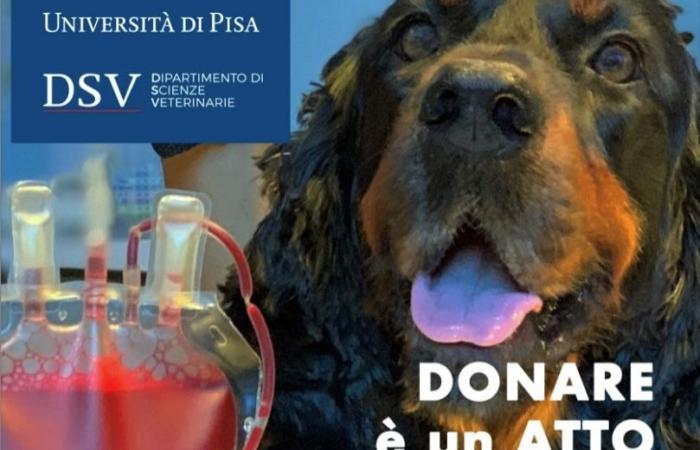The UniPi veterinary teaching hospital: “The demand for blood is constantly increasing”. For donor animals, free health check and continuous monitoring
Constant blood emergency“Mario Modenato” Veterinary Teaching Hospital (ODV) of the Department of Veterinary Sciences (DSV) ofUniversity of Pisto. The requests for plasma and blood to support the lives of our animals are in fact constantly increasing, and although the Transfusion Medicine Service has been actively working since 1994, the demand exceeds the supply of these “life-saving products”. From here the appeal to dog and cat owners so that bring their animals to donate blood. Given this availability, the hospital staff offers a real free health checkup, essential to include a dog or cat among the donors and to monitor the state of well-being of the donor animals over time. Clinical examination, complete blood tests, urine and stool tests, tests for the main infectious diseases (e.g. Leishmania, heartworm, tick-borne diseases, FIV/FeLV) as well as blood group are included.
“The demand for blood is continuously increasing, also thanks to the evolution of therapeutic interventions – says the director of the department of Veterinary Sciences professor Francesco Di Iacovo – in addition to being useful in case of haemorrhages, at the Veterinary Hospital we use plasma and concentrated red blood cells every day to treat multiple pathologies, for example poisoning, various coagulation disorders, haemolytic anaemia”.
For become donors, cats and dogs they must be healthy and aged between 2 and 8 years; the body weight must be greater than 25 kg in dogs and 5 kg in cats. From a technical-operational point of view, the sampling takes place from the jugular vein, it is a painless procedure that lasts approximately 5-10 minutes and is performed on an awake dog while in most cats light sedation is required. On the day of the donation, the animal must arrive fasting, but once the sample has been collected its day goes back to normal.
“The Veterinary Transfusion Medicine Service manages its own bank, so that the blood, stored in a blood bank, is always available to the doctors of the Teaching Hospital and the freelance veterinarians who are in the area – concludes the Professor Micaela Sgorbini, director of the hospital – Donation is an act of love between animals mediated by man and can save many lives, we consider this project of great social importance and for this reason we are at complete disposal to answer doubts or questions and also for meetings with local associations and ordinary citizens”.
For any information you can write to [email protected]
Source: University of Pisa – Press office






